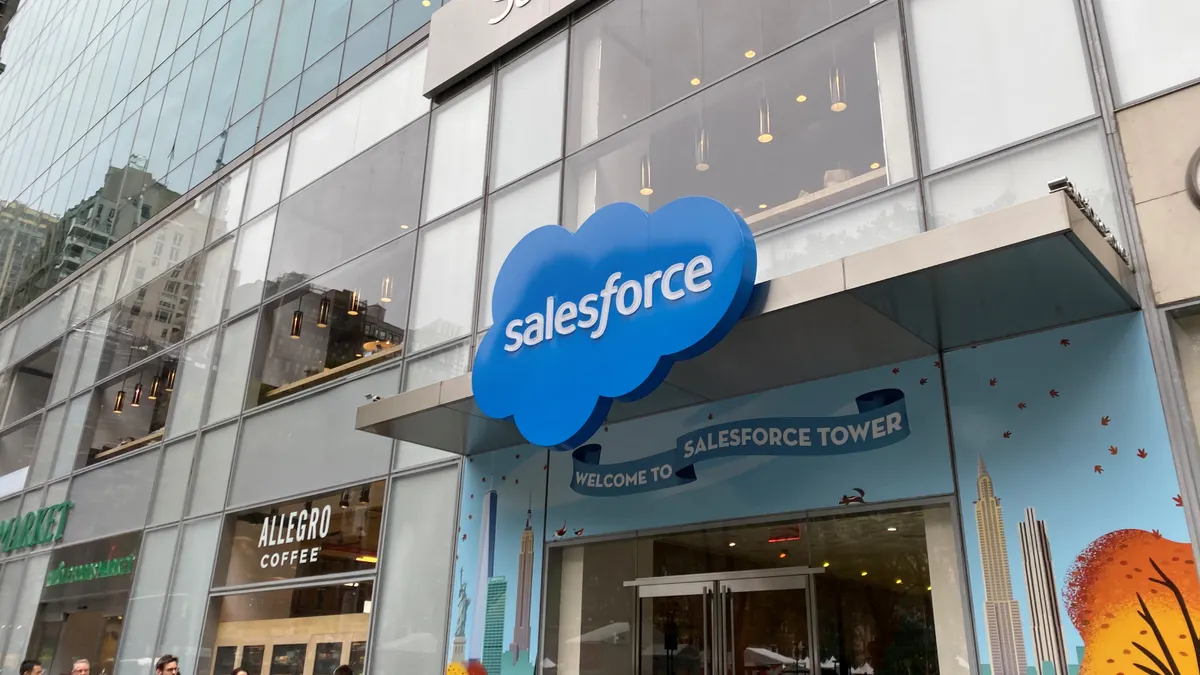Dive Brief:
- Salesforce introduced Agentforce 360, a platform for enterprises to more easily build, control and deploy AI agents at scale, the company said Monday at its Dreamforce conference. The platform is the latest release of Agentforce, the agentic system first announced by the company in 2024.
- The platform features several tools for agent management and deployment, including Agent Script, an expression language for defining agent logic that turns reasoning patterns into governable code, Salesforce said. The Atlas Reasoning Engine has been updated to enable hybrid reasoning and “reliable agent behavior.” Agentforce Builder has also been updated, among other features.
- The software vendor said the platform upgrades build on its learnings from the 12,000-plus Agentforce implementations. Some of the new Agentforce capabilities will be available starting this month, while others will go live later this year.
Dive Insight:
Vendors have spent the past year releasing tools and services designed to ease the enterprise development and deployment of AI agents. Now, providers are combining these tools into unified platforms as they look to accelerate adoption.
“Companies have invested a lot in AI, but they’re not getting the value,” Srini Tallapragada, president and chief engineering and customer success officer at Salesforce, said during a press briefing Thursday. “It’s not because of a lack of intent — people want to do this.”
Tallapragada said AI tools haven’t been properly embedded into workflows, making it difficult to yield value. Lagging governance capabilities have also made highly-regulated industries cautious.
“We have to ensure that AI is not disconnected from your systems,” Tallapragada said, referring to the Agentforce 360 platform. “We want to ensure that the value is fast.”
Google has also switched to a centralized approach, introducing customers to its Gemini Enterprise platform Thursday. The agentic platform combined Gemini models, first and third-party agents and Agentspace capabilities with a central governance framework. Google executives referred to the change as a way to offer a “single front door for AI.”
AWS unveiled a unified AI agent platform on Thursday, too. The company’s Quick Suite platform centralizes research, business intelligence and automation services, according to AWS.
The efforts to bring agentic AI innovations together into a singular offering come as enterprises struggle to adopt the technology.
Gartner predicts more than 2 in 5 agentic AI projects will be scrapped by the end of 2027 as escalating costs, unclear business value and inadequate risk controls cloud success.
“Most agentic AI projects right now are early-stage experiments or proof of concepts that are mostly driven by hype and are often misapplied,” Anushree Verma, senior director analyst at Gartner, said in June.
CIOs are tasked with cutting through hype and deciphering which use cases to pursue as adoption advances. Poor planning is often the culprit for AI project failures, according to Maryna Bautina, senior AI consultant at SoftServe.
“You need to understand what kind of business problem you’re solving and go from there,” Bautina told CIO Dive. “Sometimes there are simpler solutions that can be implemented, [and] some business problems just don’t require AI.”















